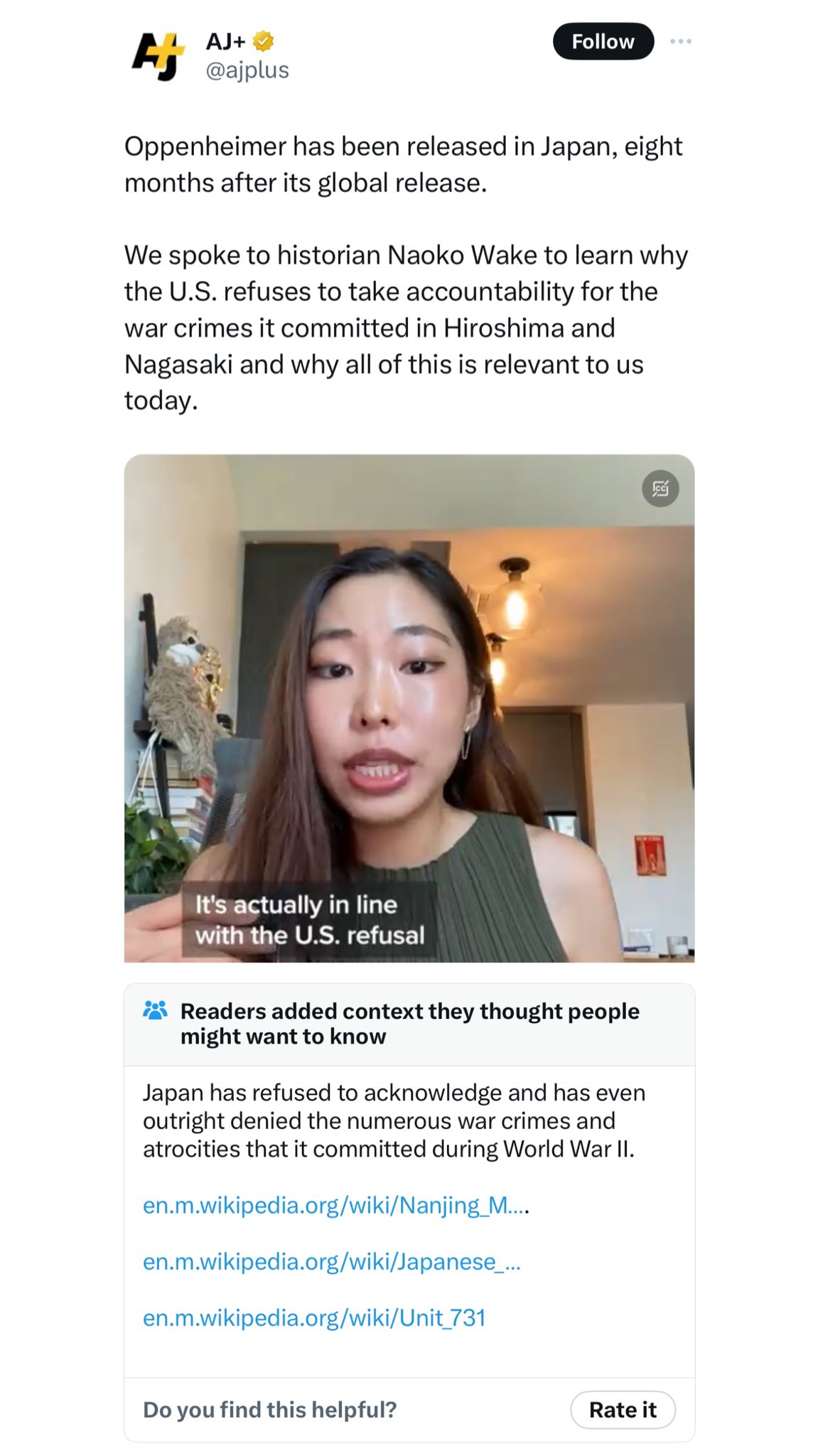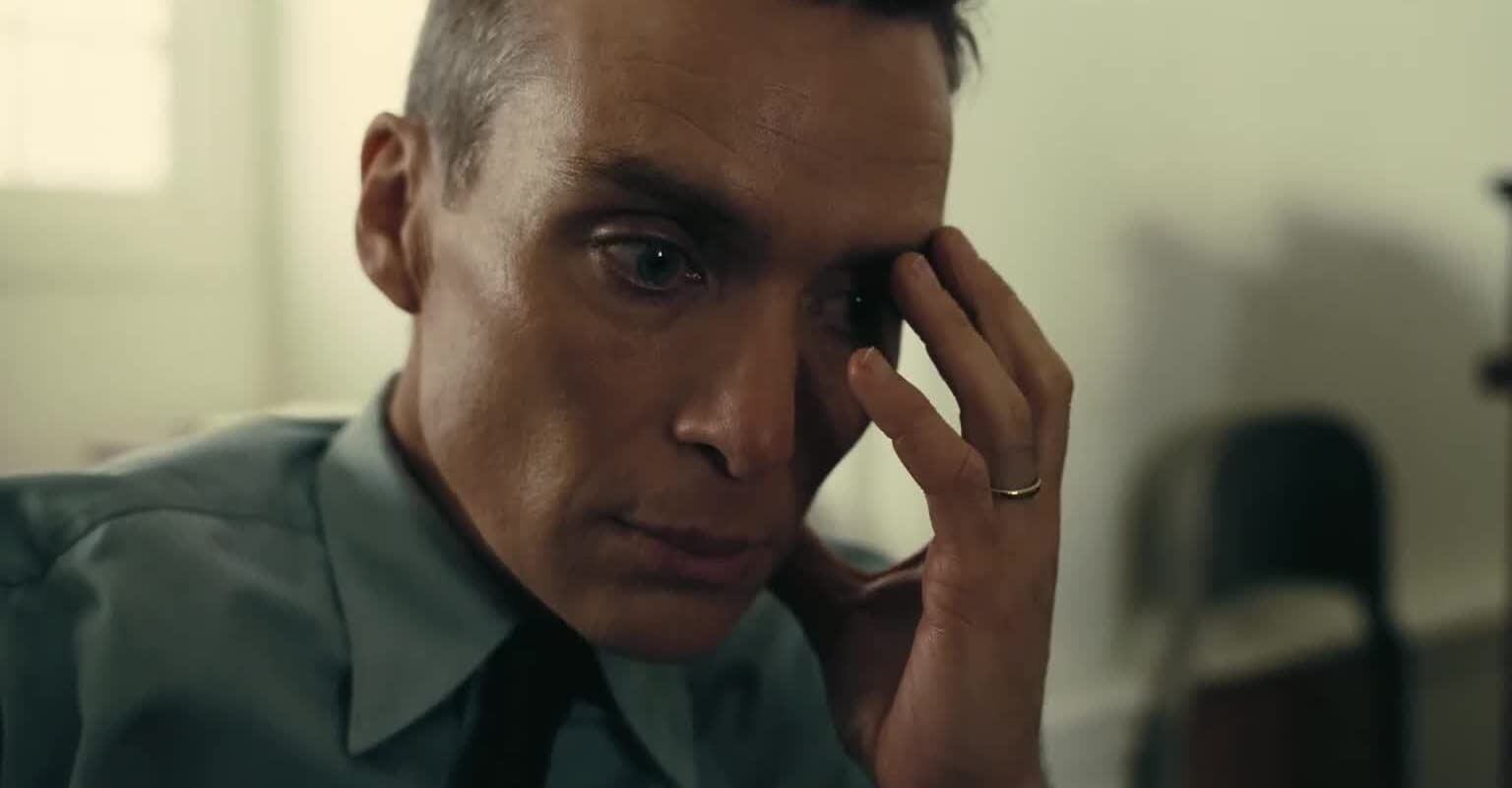

'Oppenheimer' premieres in Japan. Some Hiroshima survivors, Japanese residents are distressed.
The Oscars' best picture winner "Oppenheimer" premiered in Japan amid concern over how victims of Hiroshima and Nagasaki atomic bombings would react.
www.usatoday.com
Images on social media showed signs posted at the entrances to some Tokyo theaters, warning that the movie featured images of nuclear tests that could evoke the damage caused by the bombs.
Former Hiroshima Mayor Takashi Hiraoka, who attended an earlier media screening of "Oppenheimer," criticized the absence of humanity for Hiroshima residents. "From Hiroshima's standpoint, the horror of nuclear weapons was not sufficiently depicted," he told Japanese reporters, according to The Associated Press.
He added: "The film was made in a way to validate the conclusion that the atomic bomb was used to save the lives of Americans."
From a filmmaking perspective it was arguably the right call to not show the Hiroshima bombing, but it's a reasonable criticism.
Hiroshima resident Kawai, who would only give his family name to Reuters, made similar criticism, telling the news agency, "The film also depicts the atomic bomb in a way that seems to praise it, and, as a person with roots in Hiroshima, I found it difficult to watch."
"I'm not sure this is a movie that Japanese people should make a special effort to watch," Kawai concluded.
A character praising the bomb, to a historically accurate degree, is not the same as the film advocating for it. To the contrary, the film is very much anti-bomb.
Yujin Yaguchi, a professor of American studies at the University of Tokyo, told The New York Times the film "celebrates a tiny group of white male scientists who really enjoyed their privilege and their love of political power" rather than giving a voice to victims in Japan and America.
"We should focus more on why such a rather one-sided story of white men continues to attract such attention and adulation in the U.S. and what it says about the current politics and the larger politics of memory in the U.S. (and elsewhere)," Yaguchi added.
I see Studies department professors are also racist imbeciles in Japan too...
Toshiyuki Mimaki, a co-chair of Hidankyo, an atomic bomb survivors group, was left disappointed after leaving the theater, he told The Guardian.
"I was waiting for the Hiroshima bombing scene to appear, but it never did. It's important to show the full story, including the victims, if we are going to have a future without nuclear weapons," Mimaki said.
Maybe we can get Roland Emmerich in there to shoot a few atomic bomb destruction scenes for the Japanese edition. But, again, a reasonable criticism.
Speaking to Reuters before the movie opened, atomic bomb survivor Teruko Yahata said she was eager to see it, in hopes that it would re-invigorate the debate over nuclear weapons.
Yahata, now 86, said she felt some empathy for the physicist behind the bomb. That sentiment was echoed by Rishu Kanemoto, a 19-year-old student, who saw the film on Friday.
"Hiroshima and Nagasaki, where the atomic bombs were dropped, are certainly the victims," Kanemoto said. "But I think even though the inventor (Oppenheimer) is one of the perpetrators, he's also the victim caught up in the war."
Masao Tomonaga, an atomic bomb survivor and honorary director of the Japanese Red Cross Nagasaki Atomic Bomb hospital, called the lack of survivors a "weakness" in The Guardian. However, "Oppenheimer's lines in dozens of scenes showed his shock at the reality of the atomic bombing. That was enough for me."
The actual atomic bomb survivor understands the movie, at least.
Moviegoer and Nagasaki resident Koichi Takeshita similarly told NPR, "The last look of Oppenheimer in the film was that of pain. It was a look of either regret, because he was the person who made the A-bomb, or he didn't know what to do and was sad, as tens of thousands of people died."
I wonder how well the Japanese subtitles are conveying the film's subtleties, to be honest.










